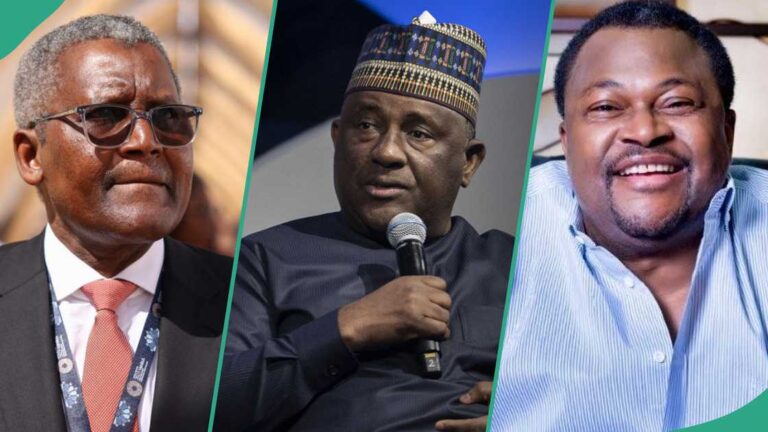Over a decade after the 2013 privatization of Nigeria’s power sector,a new era is unfolding—one where the country’s most influential billionaires are firmly taking charge. These power players are rapidly replacing the original investors in both electricity generation and distribution, reshaping the sector and creating a billionaire-led energy empire.
Today, wealthy Nigerians control over 75% of Nigeria’s electricity generation, with major stakes in distribution companies (DisCos) as well. The only part of the power supply chain still under government control is the Transmission Company of Nigeria (TCN).
The Billionaire Power Club
At the forefront is Aliko Dangote, Africa’s richest man, who operates 1,500 megawatts (MW) of captive power—electricity generated strictly for internal use, not for sale. His businesses, including the Dangote Refinery, cement factories, and food production lines, are all powered independently of the national grid.
Tony Elumelu, chairman of UBA and founder of Transcorp Power Plc, owns the Ughelli Power Plant with a capacity of 1,000 MW (currently generating 972 MW). His influence deepened with the takeover of Abuja Electricity Distribution Company (AEDC) in 2023, giving him reach across both power generation and distribution.
Deji Adeleke, through Pacific Holdings, controls the Olorunsogo and Omotosho Power Plants, combining for 640.8 MW. He’s also building a 1,250 MW plant in Ondo State, scheduled for completion in mid-2025. This project would make Pacific Energy the country’s largest independent power producer.
Femi Otedola, owner of Geregu Power Plc, is also scaling up. His current 435 MW plant in Kogi State is being upgraded with Siemens Energy to hit 1,200 MW, with new units and expanded capacity underway.
Tonye Cole, co-founder of Sahara Group, leads investments in the Egbin Power Station—Nigeria’s largest power plant (1,320 MW). His company also owns a major stake in Ikeja Electricity Distribution (IE), further tightening billionaire control over electricity access in Lagos.
Sir Emeka Offor, through the Chrome Group, runs the Enugu Electricity Distribution Company (EEDC), supplying the entire southeast region—Abia, Anambra, Ebonyi, Imo, and Enugu states.
Others like Tunde Ayeni, Sola Ayandele, Augustine Nwokocha, Gbolade Osibodu, and Tope Shonubi also hold strategic positions across the power landscape, though they maintain a lower profile.
Why the Power Sector Attracts Billionaires
The surge in interest stems from the lucrative returns recorded by players already in the industry. Billionaire-owned firms are posting record-breaking revenues and profits, sparking a gold rush in the energy space.
-
Geregu Power Plc, owned by Otedola, generated ₦137.1 billion in revenue in 2024, up from ₦82.9 billion in 2023—a 65% increase. Profits before tax rose 69% to ₦41.2 billion, with dividends hitting ₦8.50 per share.
-
Transcorp Power Plc, under Elumelu, reported a staggering ₦305.9 billion revenue in 2024—a 115% jump from 2023’s ₦142.1 billion. Profit after tax surged 165% to ₦80 billion, with a ₦5 per share dividend payout.
-
Pacific Energy, though privately held and unlisted, reportedly earned over ₦80 billion in 2024, buoyed by increased tariffs approved by the Federal Government.
These numbers are turning the power sector into a haven for high-yield investments, especially attractive amid Nigeria’s ongoing infrastructural challenges.
What’s Next?
With ongoing projects, acquisitions, and collaborations with global energy giants, Nigeria’s power sector is rapidly transforming into a billionaire battleground. These elite investors are not just chasing profit—they’re shaping how Nigerians access electricity.
The push for privatization may have begun with public-sector retreat, but it’s evolving into a private-sector consolidation. And with billions being poured into generation and distribution, the future of power in Nigeria looks increasingly elite-driven—but potentially more efficient and financially sustainable.
As more capital flows in, the question remains: Will these investments finally translate to steady power for the average Nigerian?

